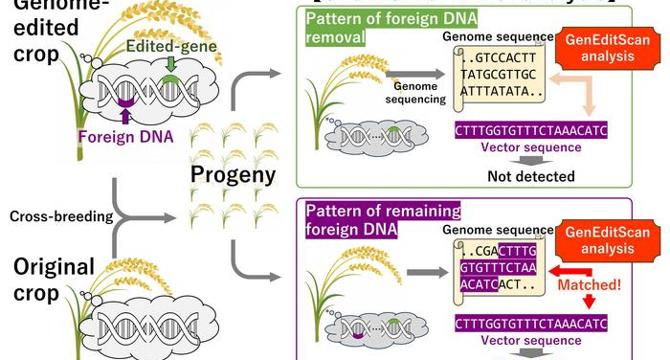Bioengineer
2d
101

Image Credit: Bioengineer
Introducing GenEditScan: An Innovative k-mer Analysis Tool for Detecting Foreign DNA in Genome-Edited Products via Next-Generation Sequencing
- GenEditScan, a k-mer analysis tool, detects foreign DNA in genome-edited crops efficiently.
- Genome editing technologies have caught attention due to their potential to introduce targeted genetic changes in crops.
- Temporary introduction of foreign DNA is a common practice in genome editing, but residual foreign DNA is a significant concern in crops grown outdoors.
- GenEditScan simplifies the process of determining whether residual foreign DNA in genome-edited crops remains, making it accessible to a broader range of audiences.
- GenEditScan minimizes false-positives and enhances the reliability of results through robust statistical corrections.
- GenEditScan enables anyone to obtain consistent results, making advanced agricultural tools accessible to diverse stakeholders, including farmers, scientists, and regulatory bodies.
- The tool has demonstrated its potential in testing various crops, including rice, potato, and wheat.
- GenEditScan is instrumental in supporting Japan's regulatory framework concerning genome-edited crops, promoting responsible practices in crop development across the globe.
- The tool empowers scientists to harness the full potential of genome editing technologies sustainably.
- GenEditScan, backed by Ministry of Agriculture, Forestry and Fisheries support, drives progress and exemplifies commitment to scientific advancement and public safety in agricultural development.
Read Full Article
6 Likes
For uninterrupted reading, download the app